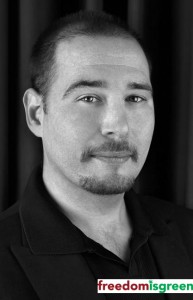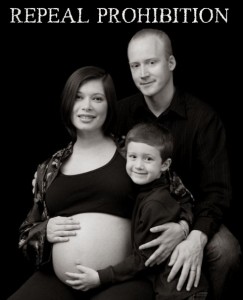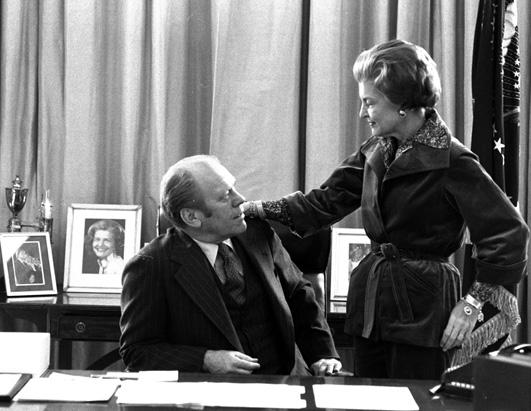
Photo by David Sygall
The spring of 2011 has brought tension to the air for everyone involved with cannabis in the United States. Federal authorities have unleashed a coordinated attack on political efforts to tax marijuana and they have made war on medical marijuana programs. This has been matched by additional states changing local laws, putting more skin into the game than ever.
The bets are now in for the biggest cannabis policy showdown in our generation – right in Washington DC. The Schedule I status of marijuana in the federal Controlled Substances Act will either be re-affirmed or changed, likely over the next 24 months.
Marijuana prohibition has become the most refined and serious states’ rights issue of the 21st Century. Millions of Americans are now participating in a multi-billion dollar medical cannabis economy.
States are taking greater pains to regulate this fast-moving industry. Why? To recognize the will of their residents but also to gain badly needed tax dollars. In some cases, they are getting that money.
At the same time, Michele Leonhart has led the Drug Enforcement Administration to conduct a major escalation of raids that bring automatic weapons into peaceful marijuana centers.
If marijuana were moved to Schedule II, III, or IV or even removed from the schedule (that is an option), it would end the conflict of state vs. federal law on all related matters. That means whatever marijuana industry that states decide to authorize (medical, recreational or hemp) could be protected, regulated and taxed.
When the Controlled Substances Act was created in 1970 a blue-ribbon commission was chartered by President Nixon to study marijuana’s proper placement. The recommendation in 1972 was that personal cannabis use should be decriminalized and it should not appear in the scheduling. Obviously Nixon ignored those suggestions.
Forty years later we live in the ‘Just Say Drug War’ era. Still, the status of marijuana has always been overseen by Congress and the President. They have been the quiet players at the poker game thus far. But the increase in aggression by the DEA and US Attorneys has produced an interesting result.
When the Washington state Legislature recently passed a bill to regulate a dispensary system for patients the fed came down like a ton of bricks on the political process. Governor Chris Gregoire (a former US Attorney in her own right) vetoed the bill. But then she turned around to announce plans to bring together the now 16 medical marijuana Governors in a unified lobby for re-scheduling to category II.
Gregoire currently leads the National Governors Association. Having the elected leaders of these states actively seek an end to federal cannabis prohibition could be a significant pressure point on Senators and Representatives in Washington DC.
We are also just beginning to see federal lawsuits filed in Montana by the victims of these DEA raids over illegal search and seizure. Cannabis and money are stolen, bank accounts cleared out; but no one is arrested. Not exactly by-the-books due-process.
The IRS has now appeared at the table as a major player, staked by the Fed against individual entrepreneurs. Financial investigations of successful cannabis business like Harborside Health Services in Oakland are underway.
At the same time the city of San Jose California began raking in $290,000 in monthly taxes from local medical cannabis sales!
The effect of these simultaneous actions has just forced everyone in the game to go all-in. Congress and President Obama are being positioned to make their bets and address the issue…during an election season. And that may be the plan.
However, supporting the move to Schedule II in the CSA is a safe position, politically. Ever growing majorities of American voters, of all parties, support their local medical cannabis laws. So, re-scheduling is backed by tremendous public support, but groups such as the American Medial Association (AMA) have also recommended the change.
Moving to Schedule II is a good quick-fix for the current medical cannabis industry as well as programs like Rhode Island and New Jersey that remain on hold. Even the Internal Revenue Service would be mollified.
Still, there should be a modern congressional commission designated to study full cannabis legalization if re-scheduling is adopted.
A more disturbing outcome is possible. The current Schedule I status could ultimately be upheld by Congress and President Obama. That would likely signal another significant increase in federal aggression towards the existing medical cannabis industry. This sends everyone down a terrible path. Battles will rage in the courts and in the faces of seriously ill patients just trying to follow their state laws.
Would some Governors then mobilize their Attorneys General, their police or even the National Guard to protect their state employees, medical cannabis centers and patients?
We are experiencing the Cuban Missile Crisis in the cold war between the States and the US Federal Government on medical marijuana laws. Moving to Schedule II would pull authorities on both sides back from the brink of violence.
The move would allow everyone to split the pot. Of paramount importance, it would directly help the millions of seriously ill residents who access this proven therapy every day.
Marijuana prohibition has seen windows for reform in the past; none have been open this wide.
Public support must be channeled because taking the game to Congress is also where the marijuana reform movement has traditionally been the weakest.
Just a handful of federal legislators are there to champion this cause: Ron Paul (R-TX), Barney Frank (D-MA), Jared Polis (D-CO), Maurice Hinchey (D-NY) and Dana Rohrabacher (R-CA) to name the most vocal.
However there is one place that the marijuana legalization movement is stronger than everyone else, including the Fed: Online. Within the modern Matrix cannabis reform is Neo.
This could be the end-game. Everyone online is at the table too, so don’t sit this one out.
Marijuana prohibition deserves a peaceful solution, for all Americans.
Commentary from Editor Chris Goldstein
Get involved:
NORML- www.norml.org
Students for Sensible Drug Policy – www.ssdp.org
The Drug Policy Alliance – www.drugpolicy.org
The Marijuana Policy Project – www.mpp.org
NORML Women’s Alliance – http://norml.org/index.cfm?Group_ID=8059
Willie Nelson’s Teapot Party – www.teapotparty.org
Questions? [email protected]
 Chris Goldstein is a respected marijuana reform advocate. As a writer and radio broadcaster he has been covering cannabis news for over a decade. He volunteers with local groups to change prohibition laws including PhillyNORML and The Coalition for Medical Marijuana New Jersey.
Chris Goldstein is a respected marijuana reform advocate. As a writer and radio broadcaster he has been covering cannabis news for over a decade. He volunteers with local groups to change prohibition laws including PhillyNORML and The Coalition for Medical Marijuana New Jersey.
 Chris Goldstein is a respected marijuana reform advocate. As a writer and radio broadcaster he has been covering cannabis news for over a decade. He volunteers with local groups to change prohibition laws including PhillyNORML and The Coalition for Medical Marijuana New Jersey.
Chris Goldstein is a respected marijuana reform advocate. As a writer and radio broadcaster he has been covering cannabis news for over a decade. He volunteers with local groups to change prohibition laws including PhillyNORML and The Coalition for Medical Marijuana New Jersey.




